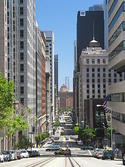Since the internet, and particularly smartphones, became household commodities, mass media's impact on people and societies has increased exponentially.
As you might expect, there is a swinging pendulum of public opinion which often shifts from decrying the ills of this trend to extolling the many virtues of on demand technology. read more »






















